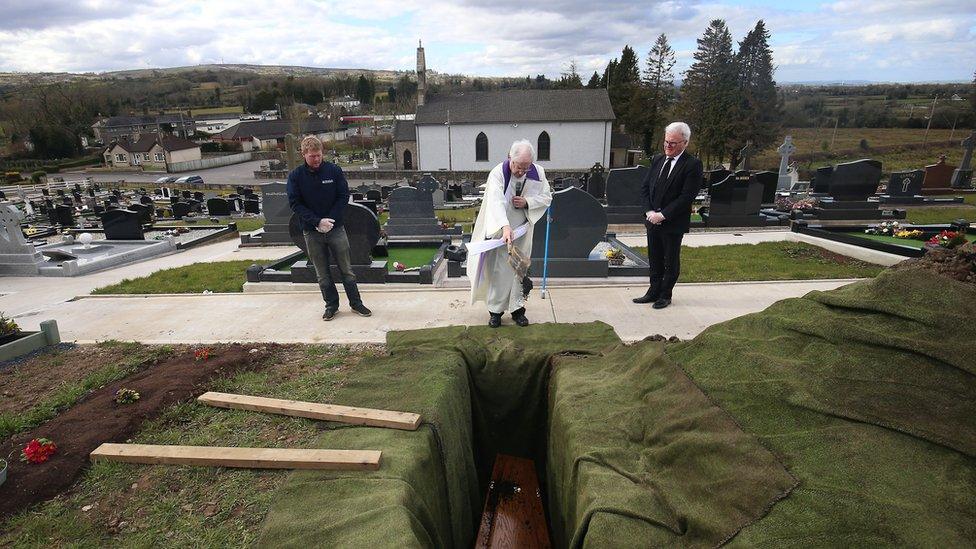Coronavirus: Bishop of Clogher eases some funeral restrictions
- Published
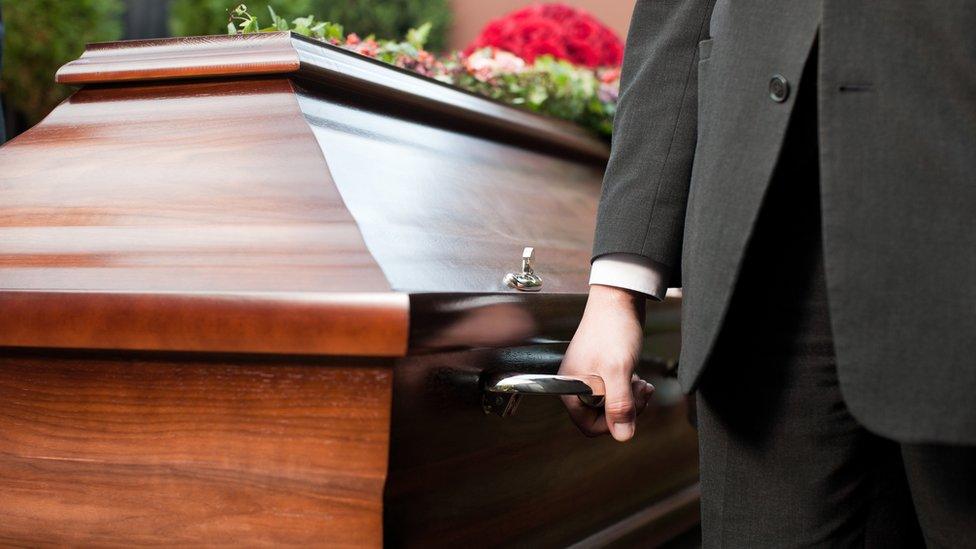
Funerals have been severely disrupted and in some Catholic dioceses they were temporarily stopped
A Catholic bishop has allowed funeral services to resume in the cross-border diocese of Clogher, saying up to 10 people can now attend services.
Bishop Larry Duffy said the absence of traditional funerals in recent weeks had been the "most difficult aspect" of the Covid-19 crisis for the bereaved.
Almost six weeks ago, he temporarily stopped all church funeral services.
But this week he said limited services can restart after the Irish government set out a phased lifting of lockdown.
During the height of the coronavirus outbreak, Bishop Duffy had instructed that all funeral services should be postponed until a later date and that the deceased should be brought directly to the graveyard for burial.
At the time, he said he was introducing measures that he could "never have imagined" in order to protect the lives and wellbeing of parishioners.
Those measures included the cancellation of all baptisms and weddings, and an instruction that clergy would not attend wakes or conduct family visits in order to avoid the spread of the virus.
Similar restrictions on public funerals were also announced by the Catholic Bishop of Down and Connor in March.
However, small family funeral services have continued in the Catholic dioceses of both Derry and Dromore.
'The most difficult aspect'
Funeral services have not been banned in Northern Ireland during the pandemic but government guidance limits the number of mourners to 10., external
Clogher's funeral ban was in place from 28 March until 4 May, when the bishop relaxed restrictions to allow up to 10 mourners to attend church funerals.
"Without doubt, the absence of traditional funeral rites with the presence of the whole family and wider community has been the most difficult aspect of the current crisis," Bishop Duffy said in a statement on Tuesday.
"Not being able to grieve properly for one's deceased adds to the pain of grief, especially more so in the exceptional circumstances we are living through."
In addition to reinstating small funeral services, Bishop Duffy said baptism services with up to 10 attendees can also resume, but this measure only applies to parishes in the Republic of Ireland.
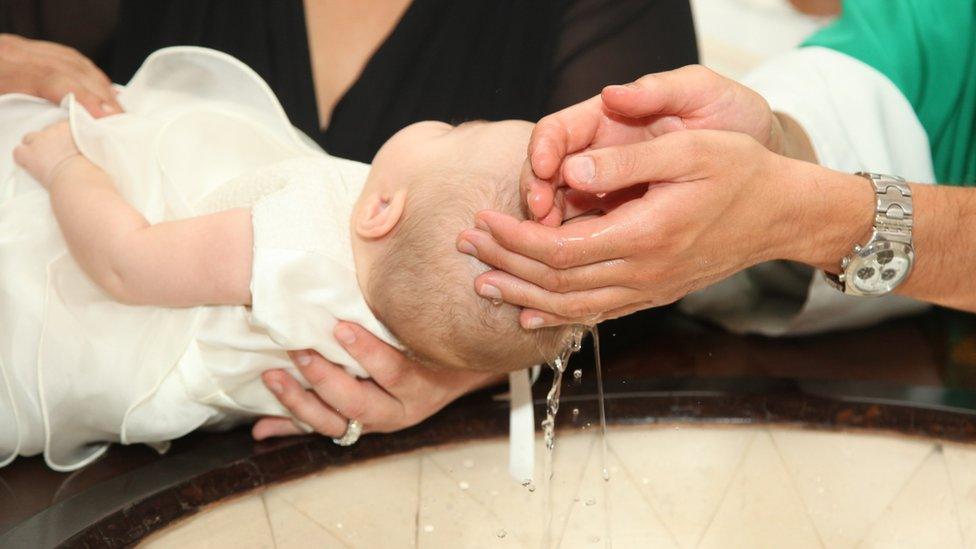
The Diocese of Clogher now has different rules for baptisms on either side of the border
The Catholic diocese of Clogher straddles the Irish border, taking in almost all of County Fermanagh and part of County Tyrone in Northern Ireland.
In the Republic of Ireland, it encompasses all of County Monaghan and portions of counties Donegal, Louth and Cavan.
Therefore, the bishop has to take account of two sets of public health guidelines.
The Republic of Ireland was first to introduce restrictions on public life due to coronavirus, announcing the closure of all schools, colleges and many public facilities from 13 March.
Debate continues on church reopening
Churches in the Republic have been remained open for private worship during the pandemic but services are being held without congregations as large public gatherings have been banned.
In Northern Ireland, churches along with many other public buildings were ordered to close to the public on 28 March, with the exception of funerals or online services, but there has been debate on whether they should be allowed to reopen for private prayer.
Last week, Environment Minister Edwin Poots said if off-licences and supermarkets could be trusted to stay open then churches could be trusted to manage social distancing for private worship.
On Monday, the leaders of Ireland's four main churches released a joint statement acknowledging it was not yet time to restart church services, but they urged the Stormont Executive to consider reopen churches for individual visits, where this could be done "safely with appropriate social distancing in place".
On 1 May, Taoiseach (Irish Prime Minister) Leo Varadkar announced a roadmap for gradually easing restrictions on public life in the Republic of Ireland.
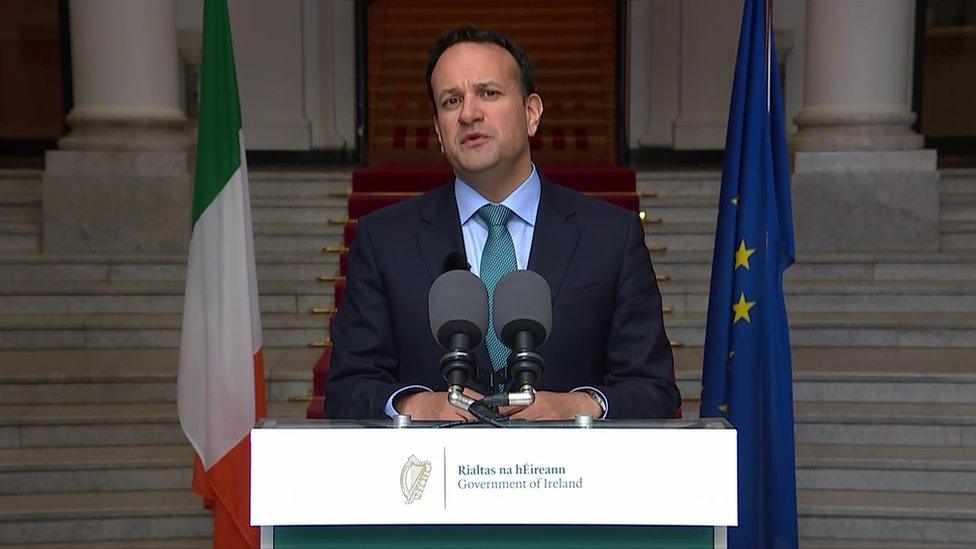
Leo Varadkar announced steps to ease the existing Covid-19 restrictions on 1 May
The phased reopening of the country will take until at least August, but Bishop Duffy reacted to the roadmap by asking his parishes to "reflect on how some degree of normality can be returned to parish life".
He added that "while it will be some time yet before we see the restoration of what we would consider a normal routine at parish level, journeys always begin with small steps, taken together and for the good of all and, especially, taking into consideration the welfare of clergy and the needs of all our people".
The Stormont Executive is yet to publish its own plan on how it will ease lockdown restrictions in Northern Ireland.
On Thursday, its ministers decided not to make any changes to their current restrictions but it is expected that they will announce some decisions next week.
Last month, Stormont ministers agreed to reopen cemeteries following pleas and protests from bereaved families.
- Published25 April 2020
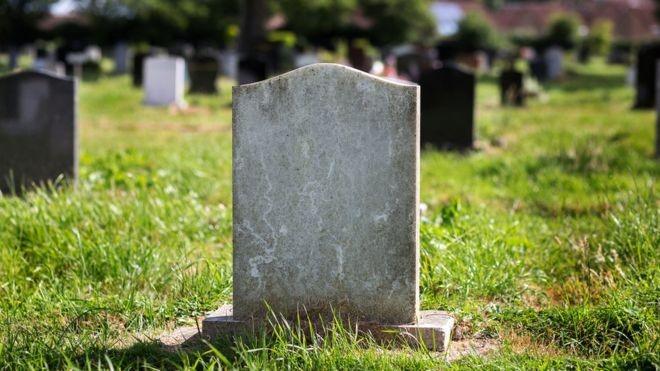
- Published21 April 2020
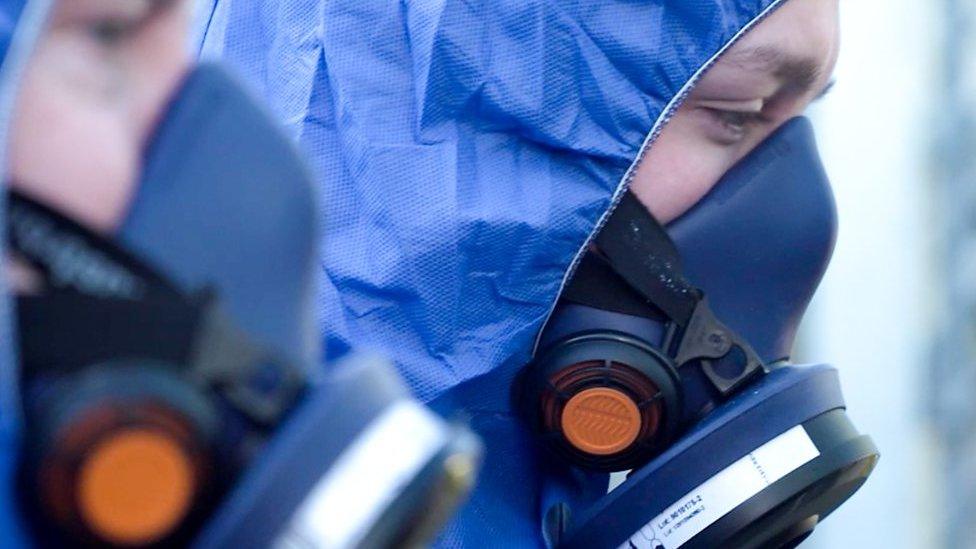
- Published1 April 2020
